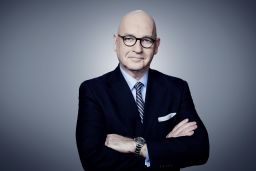Editor’s Note: Paul Callan is a CNN legal analyst, a former New York homicide prosecutor and of counsel to the New York law firm of Edelman & Edelman PC, focusing on wrongful conviction and civil rights cases. Follow him on Twitter @paulcallan. The opinions expressed in this commentary are his own. View more opinion on CNN.
Sometimes no deal is better than a bad deal. That is perhaps one of the most important lessons that now former Labor Secretary Alexander Acosta should absorb as his career appears to be crashing and burning in the wake of the “Lolita Express,” the nickname accorded to Jeffrey Epstein’s now-infamous corporate jet.
On Friday, President Donald Trump announced that Acosta had resigned after backlash against a plea deal Acosta (when he was US attorney in Miami) negotiated in 2007 and 2008 with Epstein.
Had Acosta rejected Epstein’s proposed plea deal and pursued a vigorous federal investigation of Epstein when he first encountered him in 2007, Epstein might well have been behind bars with a long sentence many years ago.

Prosecutors are often confronted with the task of making extraordinarily difficult decisions regarding the many kinds of repulsive criminal conduct they encounter. At the top of almost every ethical prosecutor’s list of the worst are accusations of crimes relating to the sexual abuse of children. These are red flag offenses that will cause any responsible prosecutor to tread carefully before accepting a lenient disposition in such cases.
The reason is that pedophiles are well known to be repeat offenders. Acosta was an experienced enough prosecutor back then to know that any guilty plea likely to put a pedophile back in circulation where he can damage the lives of even more innocent children is most probably a very bad deal. It is also the kind of plea destined to rebound and destroy the prosecutor’s own reputation when the pedophile repeats his offense, as he almost inevitably will.
This is not a new or novel concept. Acosta’s proffered defense that things were different back in 2007 when he negotiated a non-prosecution agreement (NPA) with Epstein’s prominent defense attorneys is absurd. Then, as now, any responsible and sensible federal prosecutor would recognize this agreement as a major mistake. In a press conference on Wednesday, Acosta tried to defend himself by saying that he had relied on the advice of the experienced prosecutors who worked for him in the US Attorney’s Office for the Southern District of Florida.
If this proves to be true, even the most seasoned of career prosecutors ultimately look to their boss, the person appointed by the President of the United States, to make the final decision in the big and controversial cases. It is also unseemly for Acosta to throw his prior employees under the bus while struggling to save his own job.
A crucial factor in Acosta’s staggeringly flawed decision-making in the Epstein case was likely the influence of Epstein’s expensive “Dream Team” of defense attorneys. The movers and shakers on this team included Acosta’s former colleagues at the prestigious law firm of Kirkland & Ellis. Epstein through the years has been well advised by influential criminal lawyers like Alan Dershowitz, Roy Black and Gerald Lefcourt, but his smartest move was bringing in attorneys from Kirkland & Ellis, including Jay Lefkowitz and former Clinton special prosecutor Ken Starr, to negotiate some of the sensitive final terms of the Epstein deal.
According to reporting from the Miami Herald, a hotel breakfast meeting between Acosta and Lefkowitz occurred 70 miles from the US Attorney’s Miami office where details of the agreement were finalized. What followed was Acosta’s agreement not to issue the 53-page draft federal indictment that had been prepared by his office and to keep this secret from Epstein’s victims, which at the time numbered between 30 and 40 people, mostly minors. A Florida federal judge has deemed the failure to tell Epstein’s victims anything about the whole sordid deal a violation of federal law.
Negotiations between a sitting prosecutor and a criminal suspect’s lawyers who just happen to be the prosecutor’s former employers or colleagues are not illegal nor even unusual. What is unusual in this case and clearly creates an appearance of impropriety was holding “off-campus” meetings, the use of a famous lawyer (Starr) who recruited Acosta to the firm and the clearly special treatment that was accorded to accused pedophile Epstein.
Had this case been handled properly by Acosta, the massive investigative resources of the federal government would undoubtedly have uncovered evidence of conspiracy and human trafficking. This evidence was still clear enough to New York federal prosecutors some 12 years after Acosta cut his deal for them to bring a powerful new indictment. Acosta, even in 2007, could have sought search warrants permitting investigators to search Epstein’s computers for child porn, had them scour travel, telephone and corporate jet records to establish an interstate or even an international conspiracy.
If Acosta had done this, he certainly would have mentioned it in his extensive press conference where he sought to justify his actions. He did not. Had this kind of an intensive investigation been done in 2007, it strains credulity to believe that charges at least as formidable as the current New York charges would not have been uncovered. At the very least the feds could have topped the tepid allegations lodged by local prosecutions, which resulted in a 13-month sentence where Epstein spent most of his days at home or in his office. None of this was done.
The law says Epstein, as an accused criminal, is presumed innocent but the law accords no such presumption to Acosta, as the former attorney responsible for prosecuting Epstein effectively. His resignation as labor secretary was entirely appropriate in view of his irresponsible and indefensible handling of the Epstein case as US attorney.



